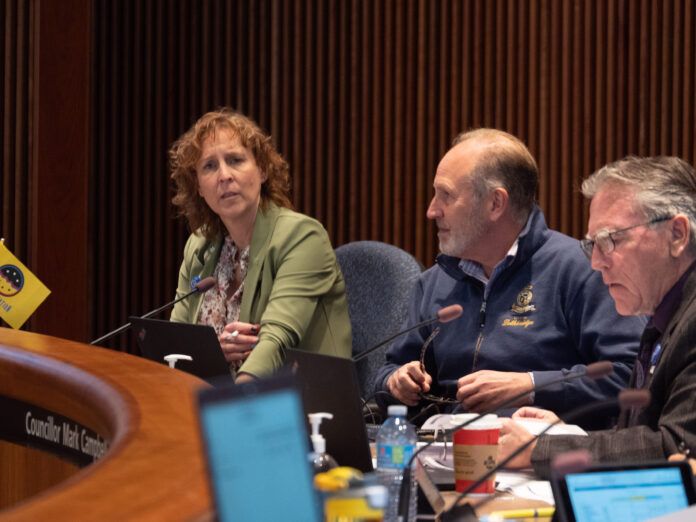Five new initiatives were debated to work towards more social and affordable housing in Lethbridge during the first day of budget deliberations on Monday. Of these, only one was carried by the economic standing policy committee. All decisions made this week will have to go through a council meeting later this month, where the budget as a whole will be voted on.
If it goes through, the city will use $1.1 million over three years, starting in 2023, to conduct a comprehensive review of the land use bylaw. This can allow for amendment options to be brought forward that could help to get affordable housing projects approved in the city.
Councillor Belinda Crowson brought all five motions to the table and said in a Facebook post after the meeting that she was not surprised at the outcome, but it was disappointing to see the others shot down.
“This won’t have any positive effect on housing for a couple of years (and only will if council actually approves the recommended changes in the bylaw) so in the short-term we have made no advances in housing,” she wrote.
One of the initiatives would have added funds to an operating grant program for social and affordable housing projects. Its intent was to provide housing incentives for residents by promoting development.
BACKGROUND: Lethbridge looking at how to assist applicants in getting rapid housing funds
“When we have been talking about the Rapid Housing Initiative and why Lethbridge did not receive funding in those earlier intakes and as we have discussed several times at council. Part of that is that we are not prepared in Lethbridge,” Crowson said. “A lot of the things that need to be done, need to be done at city level.”
It was taken off the agenda, as it was ruled to be out of order due to an existing motion from an October meeting, which was already approved. Crowson said all five motions were meant to better prepare the city to be able to get money from other levels of government in the community. They were developed after consultation with the Canadian Mortgage and Housing Corporation (CMHC) to learn why the city was not getting grant funding for social housing.
Other councillors expressed concern that the initiatives could be encroaching on provincial territory. “Should we not be relying on the province to be dealing with most of this,” said Councillor Rajko Dodic. “Are we not encroaching to the benefit of the province if we were to adopt this resolution?”
“If housing isn’t a municipal concern, I will look to my four colleagues who actually sit on boards of housing organizations, perhaps they should step down from those organizations. I would suggest that housing is very much a municipal concern,” Crowson said. “Yes, I understand it is the jurisdiction of the province, but if they were doing this to the needs that we have in our community, it would be solved by now. It isn’t and as long as people are unhoused, I would put it out there that it is a municipal concern.”
The second most significant initiative, which was defeated in a 7-2 vote, would have provided additional grant funding to support pre-development fees for social and affordable housing projects.
“There is no doubt that housing is a human right and properly funding it would actually save money in the long run — in emergency rooms, in reactive programs and in public safety. This is as much a program about public safety and about the workload of the police and other organizations as it is about housing. If we actually had the appropriate social programs in our community, police could actually focus just on policing rather than having to be our social support network.” She said some community services hesitate to bring new projects forward because it is too expensive for not-for-profit groups.
Both Crowson and Councillor Jeff Carlson voted in favour and the motion was defeated.
“The next time community groups come in front of us and tell us they are not getting grants, remember that the barrier is us. The barrier is the fact that our pre-development costs are stopping them from moving forward. It’s stopping them from getting federal and provincial money into our community. They are now risk adverse, they have now reached out to us and they have said this is where we need help, this is what we need more than anything else,” Crowson said. “It’s cheaper than removing encampments each year.”






